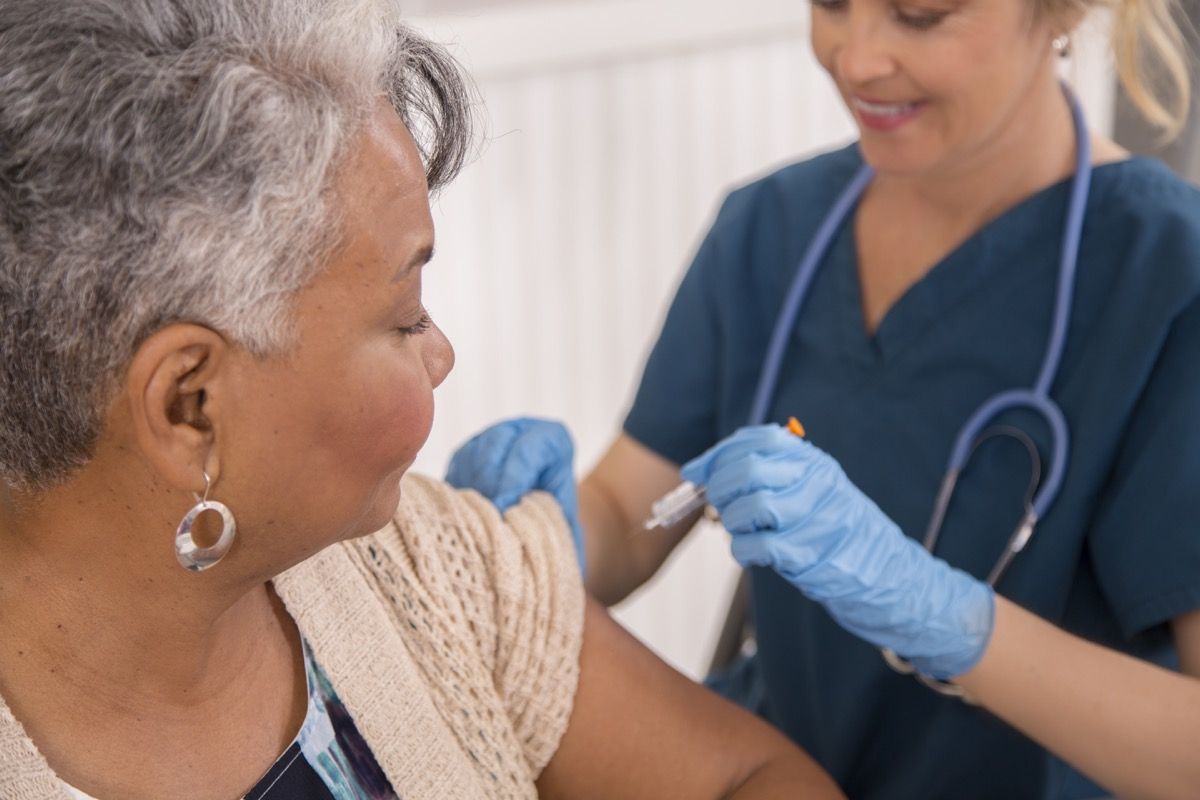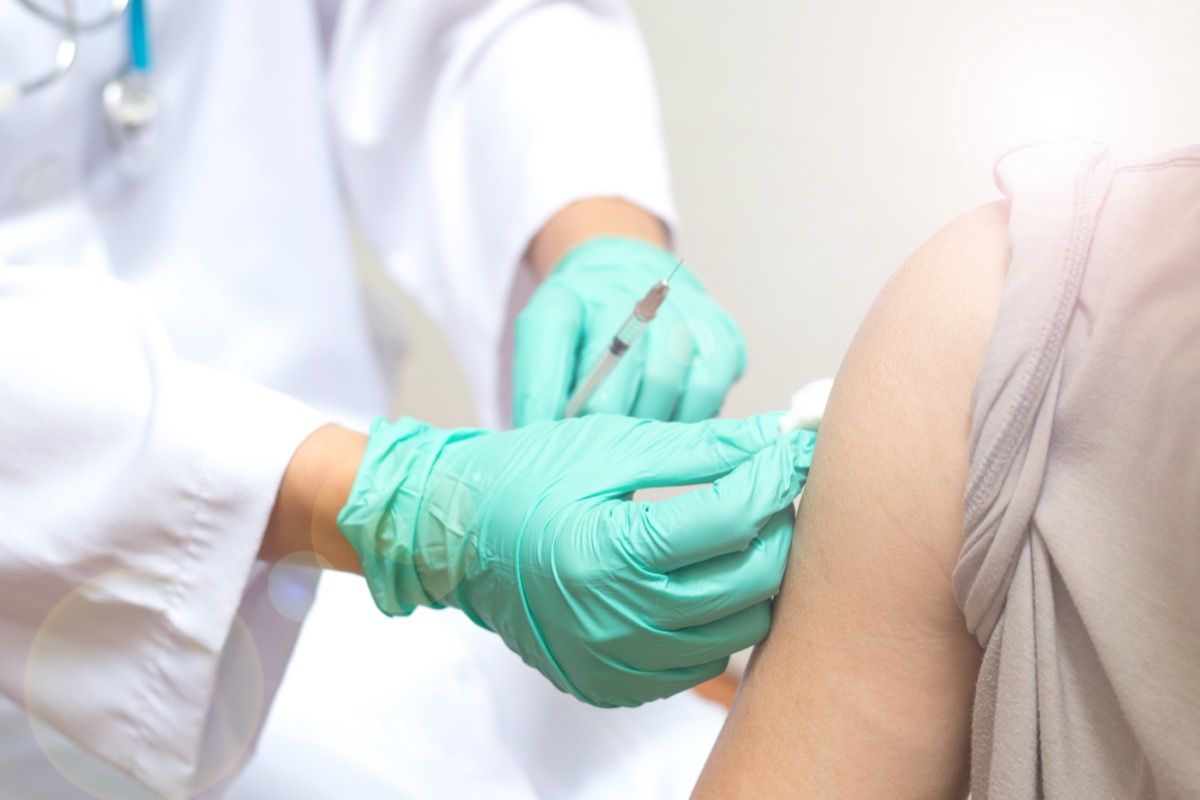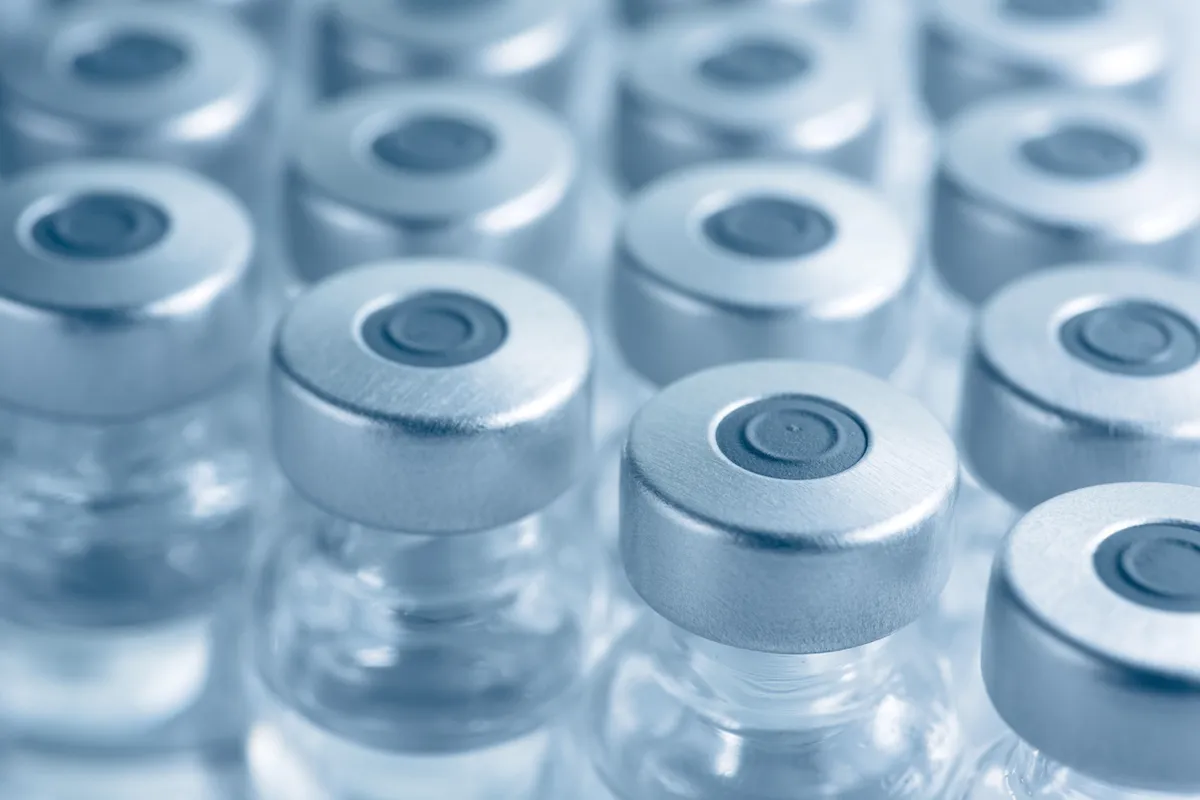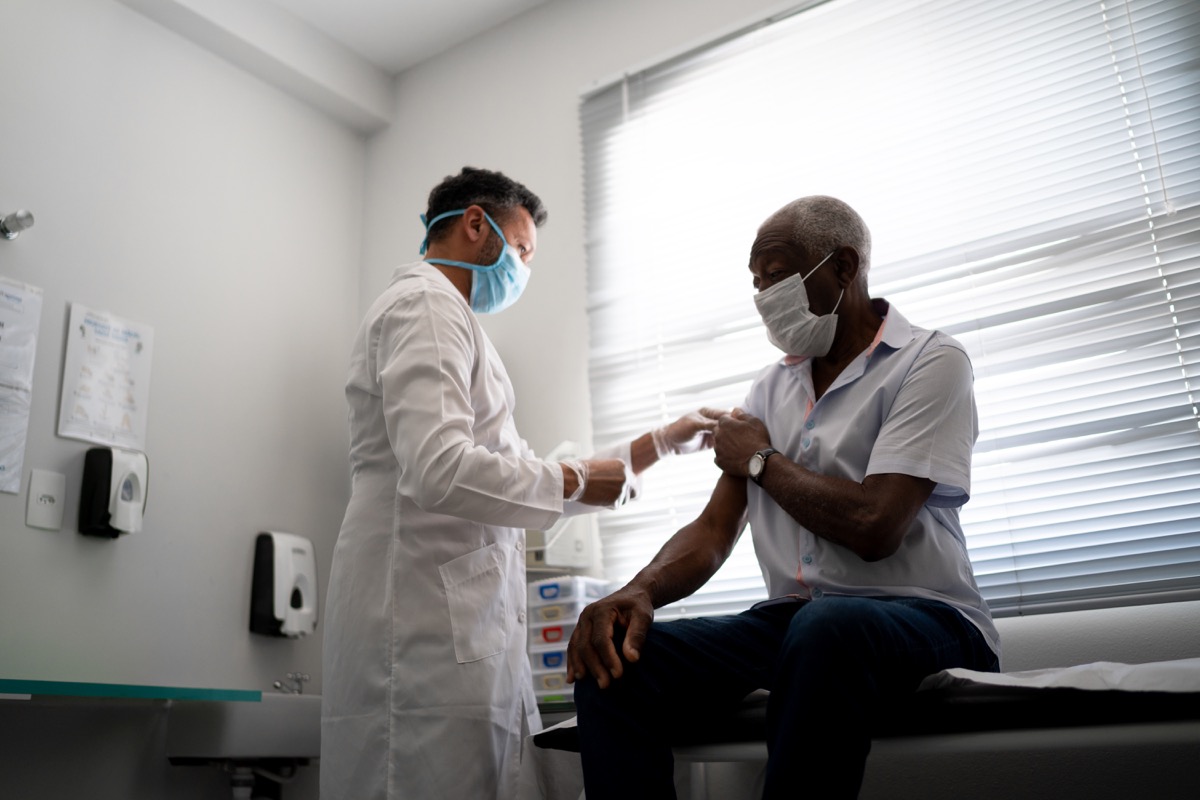A July 2020 study from the Mayo Clinic—which has not yet been peer-reviewed—examined over 137,000 medical records and found a correlation that suggests vaccines can help protect you from COVID, and not just the shots targeted at the virus. During a Feb. 17 interview with CBS, study co-author Andrew Badley, MD, said the research concluded that people who have received various vaccines in recent years could be at a lower risk of contracting coronavirus. “If you’ve received a number of different vaccines previously, your risk of having a positive SARS-COV-2 diagnosis was less,” Badley said. And for essential vaccine guidance, Don’t Do This Until a Month After Your COVID Vaccine, Experts Warn. Of course, the Pfizer and Moderna COVID vaccines will help lower your risk of getting coronavirus, but the study found that routine vaccines could also play a part in keeping you virus-free. The study concluded that when the polio, measles-mumps-rubella, geriatric flu, hepatitis A and B vaccines, among others, were administered in the past one to five years, the person had a lower chance of contracting COVID. If you’re an adult, you may not have received many of these shots since your school days, but if you’ve gotten them recently, they could contribute to your COVID protection. And for more up-to-date information, sign up for our daily newsletter. “Normally, we think of vaccines as teaching the immune system to react and protect against very specific invaders—measles, polio, mumps, pneumonia, flu, and so on. Turns out the immune system can learn from vaccines in unanticipated ways,” explained CBS correspondent Max Gomez, MD. All the vaccines you’ve received throughout your life have prepared your body to fight off invaders.ae0fcc31ae342fd3a1346ebb1f342fcb “Think of your immune system as a muscle. The more often you exercise that muscle, the stronger it is,” Badley said. “Immune training is the reprogramming of innate immune cells so that when they encounter a subsequent challenge, they have a more robust response.” And for more ways your body could be protecting you, If You Have This in Your Blood, You May Be Safe From Severe COVID. If you’re missing any of these essential vaccines, it may be time to schedule an appointment to catch up. “While the protection from the non-COVID vaccines isn’t total, it is a reason to make sure that you and your children are fully vaccinated,” Gomez said. But although these routine vaccinations might help you stay safe from coronavirus, but they’re not a replacement for the COVID vaccine. In addition to these shots, you should get the COVID vaccine once you’re eligible. And for more on the future of vaccination, This Is Who Should Wait for the Johnson & Johnson Vaccine, Experts Say.



